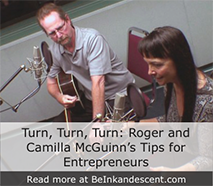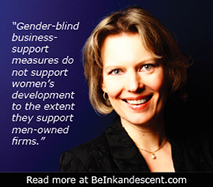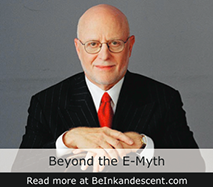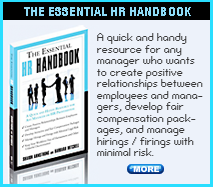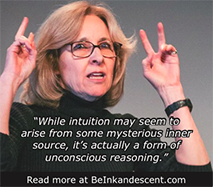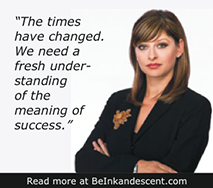Travel back in time with us to the evening of July 4, 1776. Certainly, a lot was happening that day in the colonies. Two days earlier, on July 2, the legal separation of the 13 colonies from Great Britain occurred when the Second Continental Congress voted to approve a resolution of independence.
It had been proposed in June by Richard Henry Lee of Virginia declaring the United States independent from Great Britain rule. Congress turned its attention to the Declaration of Independence, a statement explaining this decision, which had been prepared by a Committee of Five, with Thomas Jefferson as its principal author. Congress debated and revised the wording of the Declaration, finally approving it two days later on July 4. A day earlier, John Adams had written to his wife Abigail:
The second day of July, 1776, will be the most memorable epoch in the history of America. I am apt to believe that it will be celebrated by succeeding generations as the great anniversary festival. It ought to be commemorated as the day of deliverance, by solemn acts of devotion to God Almighty. It ought to be solemnized with pomp and parade, with shows, games, sports, guns, bells, bonfires, and illuminations, from one end of this continent to the other, from this time forward forever more.
In Williamsburg, VA it was a time of great expectation for another founding father — Patrick Henry, explains Richmond, VA-based historian and colonial re-enactor Ray Baird.
“On July 4, we can imagine that Patrick Henry was celebrating with his friends and family, for on the next day he will be sworn in a the first governor of a free, independent and now armed Virginia,” Baird shares. “On this night, he’s sitting right in the capitol of Williamsburg — probably in the chair of his nemesis Lord Dunmore, aka: John Murray, 4th Earl of Dunmore.” (Scroll down to learn more about the nature of their conflict.)
Little did Mr. Henry know that he will serve three consecutive one-year terms. In fact, for his famous “Give Me Liberty, or Give Me Death” speech, and the many other fiery speeches that he gave in his career, he came to be known as the voice the American Revolution.
Right now you’re sitting in the middle of the original 1741 church except you’d be facing the altar to the east. Remember this church was 25 feet wide, 60 feet deep, 14 or 15 foot flat ceilings and you had two rows of these high backed pews flanking the center aisle from the entrance in the west to the altar in the east. So imagination: there’s a wall across this opening with plain glass windows, this was a wall across the third row. Twenty five by sixty rectangle building. But what did the church look like when Patrick Henry was here? IN 1772, that would be three years before Henry showed up, the town was grown so the church has to grow to meet it. All they do at first is take that north wall, put it back about where the post is on the balcony, they’ll take this row of pews that ran along here, turn them around now facing the way you are because now they’ve moved the altar off of the east wall and put it here to steps because this wall’s still across here. Now at this point the church was not this wide, these two walls came in to the end of the given pew and then down. So after the third row it was more narrow. In other words this church was now shaped like a “T.”
So let’s get started, when we came to Virginia in 1607 I don’t know what you all have heard about religious freedom—not in Virginia. We were Englishmen and we were proud Englishmen. We were not running away from England, we were bringing England with us, we wanted to be treated as Englishmen, we wanted the same rights, same privileges as if we stayed in England. SO we bring with us this thing called a charter and a charter is going to guarantee us our rights and our ENglish liberty but it’s also pretty much going to tell us what we have to do and how we have to do it. So everything is laid out for us. First 150 years or so we were here we pretty much had it made because could leave us alone. She has to, because England has her own problems with Spain and France and Scotland and Ireland and internal problems. So while leaving us alone, and we’ll stick to Virginia, we start to grow. Now we don’t grow into a military power but economically we’re doing relatively well. We’re producing some crops and products and we’re shipping and we’re trading with a portion of the world but most importantly we are electing our representatives for us. That’s the House of Burgesses. Now these men are going to making and passing and enforcing our laws and we got pretty used to those guys telling us what to do. In 1763 things start to change, England has finally defeated the French, we know it as the French and Indian War. In England they call it the Seven Years War—it doesn’t matter what you call it, England is now heavily in debt and it doesn’t matter where we were from, we all know how governments try to get out of debt don’t we? Problem: who has the right to tax the colonies? Is it the people who we elected, that know us, that know what we can do? Or is it the parliament sitting three thousand miles away that really doesn’t care. Well that doesn’t matter because in 1765 parliament’s going to pass something you may have heard of—the Stamp Act. Now the Stamp Act is going to attempt to tax every single piece of paper that will ever pass through your fingertips, that’s up to and including a set of playing cards and a set of dice. But us Americans, we’re gonna boycott and we’re going to protest the Stamp Act to a point where it really doesn’t take effect. But also in 1765 there’s a young country lawyer from Hanover county, now Hanover county is just a few miles north of here. This country lawyer’s name was Patrick Henry. He had just been elected in his first term into the House of Burgesses. He stood up and said something that we all pretty much agreed with, “No taxation without representation.” Well the Stamp Act failed to make it but it’s quickly followed by other taxes called the Townsend Act. Now the Townsend Act, they gonna tax every single thing you have from your food to your clothing, particularly your building materials, everything, including sugar and tea. Well over the next few years these taxes will come and we’ll boycott and protest and they’ll go and come and go until finally, the last little symbolic tax we have is what’s left of the tax on tea. Now you know where I’m going with this story so I won’t bore you with it, a bunch of guys dressed up went into Boston harbor, 350-400 cases of the king’s favorite tea.
Let’s stop for a second, we have 13 separate colonies, each colony has its own Royal Governor, royal governor’s selected or appointed by the king for the given colony and the governor of Massachusetts is now mad. Not only is he mad he’s somewhat embarrassed because that’s his king’s tea floating in the harbor, “You’re going to pay for that tea Boston!”
“We didn’t do it, the Indians did it.”
“No, no, no. You did it you’re going to pay.”
“No we’re not.”
“Yes you are.”
“No we’re not.”
Well now things start to change and it’s not for the good. More ships appear in Boston harbor, these ships are loaded with more soldiers, more cannons, more guns. Wow, what enemy do we have here to marshal such an array of force? We have no enemy—those guns and soldiers were meant for us and they were meant for no one else. And then it happened, our worst fear, something called the Intolerable Acts or the Coercive Acts, now they’re going to blockade the port of Boston with British Warships. They’re going to put soldiers in public buildings, perhaps in our own house and then they’re going to start taking your rights away, such as your right to a trial by jury, such as your right to assemble as we are today and if it happened in Massachusetts it could happen in Virginia.
In Virginia now as we’ve mentioned our capital has moved from Jamestown to Williamsburg and sitting in our capitals at this point is our royal governor. His name is Lord Dunmore, now Lord Dunmore has all the power in Virginia. He can bring our House of Burgesses to session, he can dismiss the Burgesses at his pleasure, and Dunmore didn’t really like what he heard in the streets of Williamsburg—people were talking bad about his king. Well if he didn’t like that he’s not going to like the Burgesses calling the king a fool and a tyrant. But yet the straw that broke his so-called camel’s back is that one day our burgesses declared a day of fasting and prayer to support the people of Massachusetts. Sounds real nice and sweet doesn’t it? Because as long as we’re 13 separate colonies nobody worried about us, but now we’re showing signs of bonding. Two of the more prominent and radical colonies, Virginia and Massachusetts, Lord Dunmore’s mad he goes to the Burgesses and tells them, “I could have you all arrested for treason but instead—go home, you’re dismissed, you’re not allowed to meet anymore,” and he thought he had them, thought by sending the Burgesses home. Part of their responsibility is to fund out money to local militias, so old Dunmore thinks he’s killing two birds with one stone but what he doesn’t think about is those boys didn’t go home. If you remember Williamsburg the Duke of Gloucester street is the main street and it dead ends right into the capital. Well if you go about a block or so back up the street you’ll come to a little place called the Raleigh Tavern. Well these men would walk up to the Raleigh Tavern probably like most adults would, sit around talk politics, drink, whatever, and they would say, “Are we gonna [sic] sent to Philadelphia to the continental congress? Are we making any progress in our talks with the mother country? And if we meet a second time we better get out of town because don’t know what Lord Dunmore’s gonna do to us but where are we gonna go?”
Well a few of them knew about this little place called Richmond and they’ll send some people up here to find a building suitable to meet and this little church, shaped like a T, it’s the largest building in Richmond. So as nice and pretty and everything the church is, they didn’t come here necessarily because it was a church, they came here because it was the largest building to fit the physical needs and it happened to be a church. But they had to get permission from the minister who was apparently sympathetic.
But there’s another little reason they chose Richmond. As you might know Richmond is roughly 54, 55 miles west of williamsburg. In those days that could be up to a two day horseback ride. If Lord Dunmore was going to put them in jail it would take him about 2 days to get his troops together, get them up here. These men would get the word and scatter, so it was a safety reason as well.
Now this is where you might have to forgive me because when I talk about the men that were here I get a little bit excited because I like them and you may have heard of a couple of them.
March 20th 1775 they come in this door and perhaps sit right where you are. Such men as Richard Henry Lee from Westmoreland County, a gentlemen from Fairfax County by the name of Colonel George Washington, a young lawyer from Albemarle County by the name of Thomas JEfferson. Back here against this wall, where the steps are, probably the most beloved man in all 13 colonies, because this man had already been elected to the first President of the entire Continental Congress the summer before, his name is Peyton Randolph, from Williamsburg. Benjamin Harrison from Charles City, Thomas Nelson from Yorktown, and again that country lawyer from Hanover county, Patrick Henry. On the fourth day of that convention, March 23 1775, Mr. Henry’s going to raise his hand, “I have a resolution to put forth and it is: you see what happened in Massachusetts could happen in Virginia, they can blockade the Chesapeake bay, put soldiers in our house, take away our right to a trial by jury. No. We better get ready. We need a militia.”
Well the minute he said that, half the men in this place screamed, “You’re a traitor Mr. Henry, be patient, things are going to work out okay.”
He said, “Be patient for what? I been waiting for 10 years for things to work out okay and it’s only gotten worse and how much better can I judge the future but by looking at the past?”
“Oh but Mr. Henry, if we pass your resolution then the king can take that as an act of war and who are we, little Virginia, to stand up to the most powerful nation on earth.”
Well a quick timeout because at this time Virginia wasn’t so little. We were the largest, most populated, and one of the two wealthiest of the 13 colonies but we certainly weren’t a military power. Well these men are going to argue back and forth and finally Mr. Randolph heard all the screaming and hollering he could handle. he quiets everybody down. Patrick Henry’s going to raise his hand and ask for permission to speak, as normally as he, as a trial lawyer, may know how to talk.
Now if you go back to your homes and you don’t know anything else about Mr. Henry please remember this: speaking was his gift. He could verbally grab you by your shirt collar, raise you up, sit you down, make you go with what he said. He was such a great speaker that he’ll never write the speeches down, he speaks from his heart. So someday you might wonder how we know what he said if he didn’t write it down. Well thank goodness for his first biographer, he took care of that for us. But we also know that as a trial lawyer he would not have stayed in his pew. Now the historians marked that pew as the pew he was in the day he gave his speech but you know a lawyer, much less a fired up lawyer, he’s not gonna stay confined to a pew. He’s going to walk this floor. Now you tell me, in a court of law, what do you call those twelve people that an attorney has to convince? THat’s a jury. Now Patrick Henry has these men right where he wants them because in his heart he sees a jury, so he’s got ‘em. Well we know he walked this floor and he was probably in everybody’s face that he came to and during that time he’s going to speak in everything from a whisper to a scream. Now use your imagination, put yourself there. Mr. Henry’s been speaking to you and at you now for twenty, thirty, whatever minutes. Now you’re yelling back at him, “You are a traitor Mr. Henry, everything your speak is treason!”
He stops and says, “Our chains are forged. Their clanking can be heard upon the plains of Boston. The war is inevitable! And let it come. I repeat it, sir, let it come.”
“Mr. Henry we’re weak, we can’t fight such a formidable foe as England. We must have peace, we have to work for peace.”
Again, he stops and says, “It is in vain, sir, to extenuate the matter. Gentlemen may cry, Peace, Peace but there is no peace. The war has actually begun! The next gale that sweeps from the north will bring to our ears the clash of resounding arms! Our brethren are already in the field! Why stand we here idle? What is it that gentlemen wish? What would they have? Is life so dear, or peace so sweet, as to be purchased at the price of chains and slavery? Forbid it, Almighty God! I know not what course others may take; but as for me, give me liberty or give me death!”
And it was quiet just like this, then your hear, “To arms! To arms!”
Now he’s got half of them fired up and ready to go to war. But your know how it works, put in the form of a question, seconded and then that was done. Mr. Randolph says president says, “You weigh your decisions very carefully.”
Use your imagination, put yourself there. You’re being asked to vote on a resolution that would send you to war against your king. If you win this war you’ll be fine. But suppose you don’t. Well they voted and out of about a hundred and twenty delegates it will pass but only by 5 or 6 votes. Well, something’s gotta be done about it and since it was Mr. Henry’s idea they’ll put him in charge of a committee to raise the militia and we all know who he’s going to choose to be the leader of this militia. There’s only one man, that’s the gentlemen from Fairfax Colonel Washington. Colonel Washington will accept the command of the Virginia forces and at the next continental congress he will be offered and accept the command of all American forces. And as we know in another five and a half, six or so, very tough hard years, General Washington will eventually lead his men to victory at Yorktown. Goes on to become our first president and the father of our country but we like to call him the sword of the revolution.
Oh about 15 months after this meeting that young attorney from Albemarle county will get the credit for writing a document known as The Declaration of Independence. That will be Thomas Jefferson who goes on to become our third president and we’ll call him the pen of the revolution and Patrick Henry for this speech and other fiery speeches we’ll call him the voice or the tongue of the revolution. Also 15 months after this meeting, I do know the exact date because it happens to be July 5th 1776, our Patrick Henry will be sworn in as the first governor of a free, independent and now armed Virginia and he’s sitting right in the capitol in Williamsburg and we know he’s sitting in Lord Dunmore’s chair. Well Mr. Henry will serve 3 consecutive one-year terms, by law he has to get out for at least 4 years before he can serve again, to which he will eventually do.
Well that street our front is Broad Street, if you were to go down and up where the hospital sits today, if you were standing out there in the first part of June of 1788 you might hear someone scream, “I smell a rat!” That was Patrick Henry, he was talking about the US Constitution. He was dead-set against it and he would fight it to his last breath if he had to. But it was during that argument on the 5th of June of ’88, Mr. Henry’s going to say something that’s as dear to me as anything he ever said and I have to share it. He will say, “Liberty, the greatest of all earthly blessings—leave us that special jewel, and you can take everything else.” Well the constitution did pass, fortunately for us all three years later what we have come to know as our bill of rights were added.
Well things are starting to work out. New president Washington during his eight years as president will invite Patrick Henry to be ambassador to France and or Spain, Secretary of State, Chief Justice of the Supreme Court, but you know there’s one thing Mr. Henry was afraid of, more than all the British in England, and that was debt. He didn’t want to pass away, leave his family in debt, and have their properties taken. So for the most part now Mr. Henry would put public life behind him, go back to his two professions as an attorney and a farmer, he will eventually work his way about a hundred and ten miles southwest of richmond to his final home known as Red Hill to where he will practice law and farm until June 6, 1799 he passed away and Red Hill is where he is buried.
Real quick before I let you go. Patrick Henry’s father was John Henry, he will immigrate to Hanover county from Scotland, fall in love, and marry a very wealthy widow. Her name was Sarah Winston Syme. May 29, 1736 our Patrick Henry was born in Hanover county. Basically after the age of ten years old he is what we would call today, homeschooled by his dad. But at the age of 16 years old his dad will set him up into what they call a mercantile or a general store type of business and it will fail. At 18 years old Mr. Henry will fall in love and marry 16-year old Sarah Shelton. He will try to be a farmer, it will fail and then his house burns down. So he’s having a little bit of rough luck. His father in law Mr. Shelton says, “Pappy why don’t you bring your little family, but them in the back of my tavern in a house out there. Help me be an innkeeper.” And he does. Things are working out pretty well for the young Henry family but across the street from the tavern today, just like it was then, is the Hanover courthouse. Well during court session lawyers and judges, they’ll come over to the tavern. They’re going to eat and drink and rest and talk law. Patrick Henry being a good waiter, he’ll wait on the tables and listen. Slow times at the tavern Mr. Henry can go over to the courthouse and listen.
“I think I can be a lawyer.”
Well the boy doesn’t have any money and with a small family he can’t walk off and leave them and go to William and Mary for whatever years it might take but he was able to do what they call, “read for the law.” Basically, he could study on his own. All the thousands of books, papers, and documents, take all the years he thinks he needs, and when he thinks he’s ready he will approach his professors at William and Mary. And if he can pass two oral bar exams and they sign his licence, he can practice law. Well historians think somewhere between 6 weeks and 6 months Mr. Henry thinks he’s ready to go, it’s closer to six weeks actually. He goes down to William and Mary and the first man he sees through family connections is George Wythe. Now George Wythe buried right outside this door, he’s the first law professor in the United States, he signed the Declaration of Independence, he will sign Patrick Henry’s law license. The second man he goes to see, quite the contrary, was Robert Carter Nicholas, “Son you have no education, get out of here I don’t even want to talk to you.” The third man he goes to see is the future president of this convention Peyton Randolph, “Son I’d love to talk to you but my wagon wheel is broken, I have trouble with my servants, go see my brother John and tell him I said to talk to you.” He goes to see John Randolph and John will sign his law license.
Now I have per cure me as an attorney and I’m certainly not going to bore you with this. But have you ever heard that expression, “Oh that ain’t worth two cents,” or “Put your two cents in.” That comes from a case called the Parson’s Cause. To sum it up in one sentence Patrick Henry has now embarrassed a church and made a fool of the king. That’s two pretty big enemies in the state but that makes Mr. Henry a hero here in Virginia. The day he stood here and gave this talk he was 38 years old. His young wife Sarah had just passed away and left him 6 children. So for the last time, put yourself in his place: you are a farmer with those responsibilities, you are an attorney with legal, now political and legal, responsibilities, you have six motherless children, and there’s a war coming on. How’re you going to do this by yourself? Some people think he was somewhat of a prophet, because a little more than three weeks after he spoke here the shots were fired at Lexington and Concord. The war had started and Virginia was getting ready. But don’t you all go back to your wonderful homes and worry about our Patrick Henry one little teeny bit. A couple of years later he will meet, fall in love, and marry another young lady. Her name is Dorothea Dandridge. She is a cousin of Martha Washington, George’s wife. They are married, 11 more children. So no matter where you go in this wonderful country, if you run into anybody that tells you they’re kin to Patrick Henry, don’t argue with them.



































